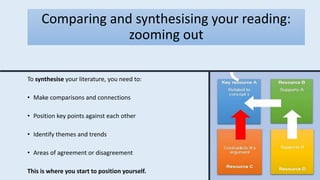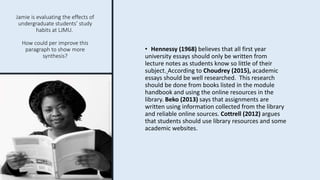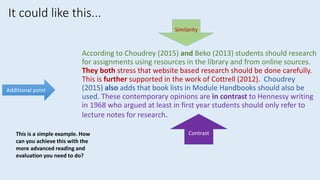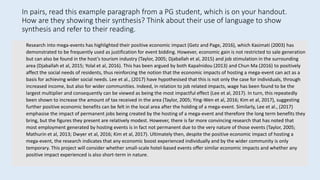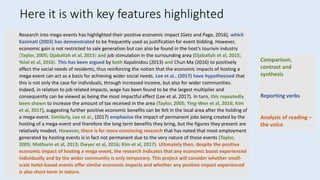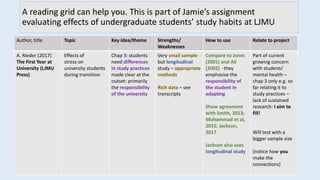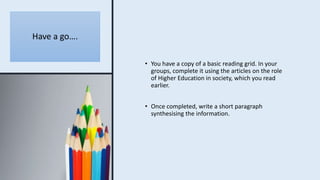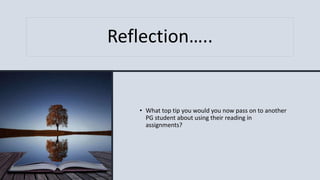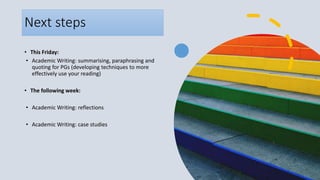This document discusses using academic reading in postgraduate assignments. It explains that students should use reading to support arguments and ideas in their writing as they are part of an academic community that values research. Reading needs to be analyzed, compared and synthesized before being incorporated into assignments. The document provides tips for effective reading such as reading with learning objectives in mind, choosing sources carefully, and keeping notes on critical questions. It also discusses developing an academic voice by analyzing readings and stating one's own interpretations. Comparing, contrasting and synthesizing multiple sources is important for situating one's work within the existing literature. Examples are provided to demonstrate effective synthesis in writing.
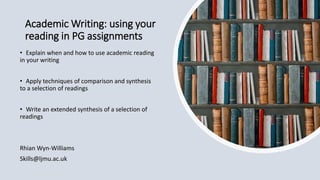
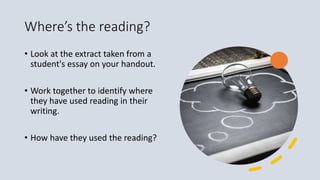
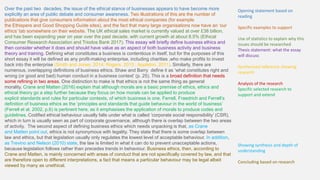
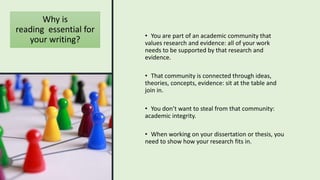
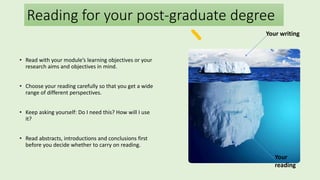
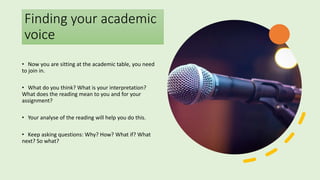
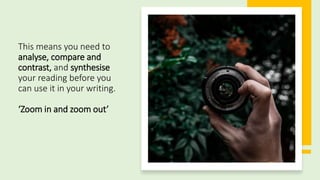
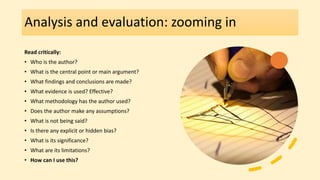
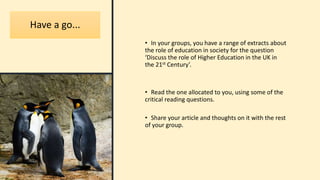
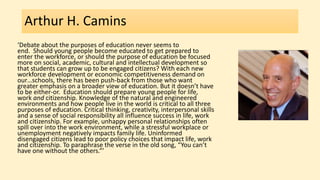
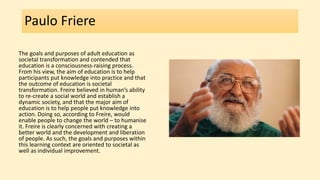
![bell hooks
‘The heart of education as a practice of
freedom is to promote growth. It's very much
an act of love in that sense of love as
something that promotes our spiritual and
mental growth.
When people frequently ask me, 'What
changed your life; what enabled you to come
from this working-class, segregated home
where [your] parents were not college-
educated people into being one of our
nation's well-known intellectuals?' [My
answer is,] 'It's there in that space where I
learned to be a reader and a critical thinker.'](https://image.slidesharecdn.com/pgusingreadinginyourassignments-200219172356/85/Pg-using-reading-in-your-assignments-12-320.jpg)
![Mike Rustin
‘Opposition to the government's higher education
policy [of greater focus on employability skills] is
from people who has so far been expressed in very
traditionalist terms – with the idea that a university
has an intrinsic value and good. On the one hand,
you have the marketised view of universities as
equipping people to earn their living, and on the
other hand, a traditional view that universities are
about pure learning, but the students we have here
have always seen benefits beyond learning for its
own sake. We have really hard evidence to show
that students are fairly clear about why they want to
go to university – and for the vast majority, it is
about getting a better job and having a successful
career. A lot of people say what about learning for
learning's sake? I find that problematic. Everyone
has a purpose for why they want to learn.’](https://image.slidesharecdn.com/pgusingreadinginyourassignments-200219172356/85/Pg-using-reading-in-your-assignments-13-320.jpg)
